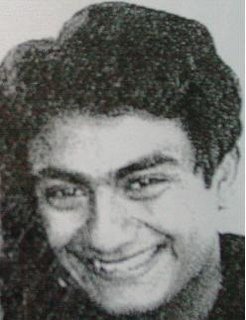
By Gaurav Parab
Hannibal Lecter, the aristocratic flesh eating doctor can make a good bogeyman in today’s wild times. Eat your food son; else Dr Lecter will eat you. Yum.
There is no doubt that Thomas Harris is a great writer. One of the best of this generation. Can anyone come close to making an evil serial killer more likeable? Is there any sight scarier or even more delightful than Lecter’s brilliant red eyes staring back at you?
With Hannibal Rising due for release, the question for me was whether Thomas Harris retains his skill as a remarkable story teller. Skills which were perhaps demonstrated best with the Silence of the Lambs. Skills which were evident in Hannibal, even if to a lesser degree.
Hannibal Rising on its own is a good book. Harris makes Hannibal look human before his eventual journey into monsterhood. Like Hannibal before it, Hannibal Rising gives a rare insight into the mind of everyone’s favorite doctor.
The book manages to explain the rising of Hannibal. The evolution of evil is revealed.
Has it been done well?
Taking readers back to the early childhood of Lecter, Harris draws vivid imagery of the troubled times that Hannibal faced. We see Hannibal living in Lecter Castle in Lithuania with his parents and little sister Mischa. He is so smart that to his nanny, it seems that little Hannibal could always read. He loves mathematics, and spends his play time calculating the height of the castle’s towers using the length of their shadows.
One evening, as a black swan charges at little Hannibal and his sister, he spreads his arms to appear bigger than he actually is. The black swan flies away. Scared of what appears to be a bigger bird.
“We do this everyday.” Hannibal calmly tells the swan.
The Lecter’s world is shattered as Hitler launches Operation Barbarossa. As his armies sweep through the Baltic region, the Lecters retreat to their forest lodge. Still leading a life of relative privilege, Hannibal’s lessons in maths and the sciences continue under a private Jewish tutor. After three years, the Nazis are finally driven out. As they retreat, a German fighter sees a Soviet tank at the Lecters' lodge. The fighter bombs the tank and the tank responds in kind. The explosion kills everyone but Hannibal and his beloved little sister Mischa. That is where Hannibal’s journey to the other side begins.
Six Lithuanian mercenaries find refuge in the cottage and kill and cannibalize young Mischa when they run out of food. Hannibal turns mute in terror.
Hannibal does not go into the darkness. The darkness engulfs him.
He is eventually found by some Soviet soldiers and is sent back to Lecter Castle, which is now an orphanage.
The book is about Hannibal’s journey thereafter, How Hannibal flourishes as a medical student in France. How he falls in love with his exotic Japanese aunt. How he makes his first kill. How he extracts revenge for little Mischa. How he becomes Satan, when he easily could have settled on being a God.
Harris explains the why and when brilliantly. But when he explains the How, he falls surprisingly falls short.
At times, you sense that Harris is writing with only the movie in mind (Hannibal Rising will be out in February 2007). Throughout the book, you miss the story teller in Harris. There is no suspense, and no thrills like Silence of the Lambs or even like Hannibal. The book is definitely not a page turner. It is more like the sort of book you read slowly to try and absorb the atmosphere. To perhaps fill in some non-existent gaps. Or to see the beauty of the palace of memories in Hannibal’s mind.
Hannibal Rising is never about the plot, which is really incidental – it is about Lecter. But, one wonders – Hasn’t he been explored enough? Was it worth shattering the mystery surrounding the brilliance of Hannibal Lecter, perhaps one of the greatest anti-heroes of our time?
One of the major reasons everyone liked The Silence of the Lambs was because Lecter seemed to have come out of nowhere. Harris gave no reason on why he was cruel. All we knew was he was outrageously smart. 'Nothing happened to me,' he tells Clarice Starling. 'I happened. You can't reduce me to a set of influences.'
With Hannibal Rising, the set of influences are explained. The demonic hero looses his aura. It turns out that he is as human as everyone around us. What a shame.
Do read if you want to know more about Lecter. Avoid if you are looking for the thrill that Lecter gives as soon as he appears in your mind. For with Hannibal Rising, the use of Hannibal Lecter as a bogeyman to scare your kids is doubtful.

1 comment:
stop wasting your time with poems man.....u should really do more book reviews.
~VM
Post a Comment